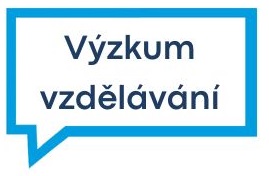The article strives to contribute to the debate on the concept of corporate social responsibility by focusing on the under-researched area of the effects of firms’ grants on local and regional development from the perspective of local governments and inhabitants. This concept is typically studied from the corporate perspective. While normally ignored, the spatial dimension plays a substantial role in firms’ grant allocation decisions. The article tries to fill the gap by studying the case of spatial distribution of financial grants of the ČEZ Corporation to communities in the vicinity of the Dukovany nuclear plant, which is located at the peripheral border of the regions of Vysočina and South Moravia. The considerable amounts of money sent to local budgets are intended to compensate communities near the nuclear plant for the risks related to its existence.
The first aim of the article is to present the spatial distribution of selected ČEZ grants to communities near the Dukovany plant and to compare them with the mean revenues of local budgets in 2003–2012. The second aim is to present in more detail selected ČEZ grants to communities near the Dukovany plant in 2003–2012 and the ways they were earmarked. The data was drawn from publicly available databases on local budgets, annual reports of the ČEZ Foundation, which distributes a large part of ČEZ grants, and interviews with members of local governments and the ČEZ Foundation on additional grants allocated on a contract basis to communities in the immediate vicinity of the power plant.
Although mean per capita local revenue exhibits a relatively even distribution (except for above-average revenues in the five-kilometre Emergency Planning Zone), ČEZ Foundation grants were distributed unevenly, with communities further away from the power plant receiving considerably lower financial support. The municipalities of Rouchovany and Dukovany where the power plant is located obtained the most money, especially after 2003 when an expansion of its medium-term nuclear waste facility was underway. The distribution became more-or-less even in the final years of the period studied. The local governments earmarked a significant majority of the grants for infrastructure improvements. The grants played a substantial role in the budgets of local communities that exist in the peripheral region marked by considerable economic difficulties. They allowed the local governments to fund projects that would have been fully beyond the scope of their budgets, thus importantly contributing to improving their image, local facilities, and local people’s quality of life. ČEZ Corporation’s activities have been a significant help for the region and some communities have reached such level of facilities that exceeds regional standard. The region’s peripheral nature, which was one of the reasons for building the power plant, has been changing due to the plant owner’s grants, helping the territory somewhat escape traditional definitions of periphery.
ČEZ Corporation’s grants have gradually become an important part of the revenues of local governments and an important impetus for their development. The long-term and systematic effects of the extensive and more-or-less stable grants may have influenced the region’s development much more than any other development programme. Along with the growing pressure for corporate social responsibility, the study of this topic can help us understand not only the developmental effects of CSR but also CSR as a relatively new mechanism of regional development in general.








